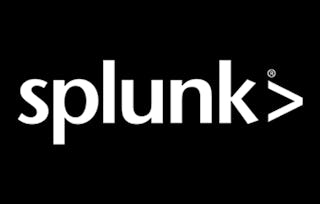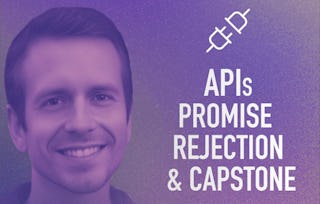In this course, you will go beyond dashboard basics and learn about Dashboard Studio's underlying framework, the dashboard development process from prototyping and wireframing to troubleshooting as well as adding visualizations, dynamic coloring and drilldowns. Then you will go further by making your dashboards interactive with user inputs. You will learn how to use mock data, add annotation searches to a visualization, and improve dashboard performance. Finally, you will take a deep dive into maps using the classic simple XML framework where you will learn how to create cluster and choropleth maps, customize their color, and make them interactive.

Splunk Knowledge Manager 103

Splunk Knowledge Manager 103
This course is part of Splunk Knowledge Manager Specialization

Instructor: Splunk Instructor
Included with
10 reviews
What you'll learn
Convert classic dashboards to the Dashboard Studio, define the dashboard definition, manage and troubleshooting dashboards.
Create prototypes, layouts, add and clone visualizations, build dynamic drilldowns, use auto-alignment, customize dashboard backgrounds
Use dynamic coloring for visualizations, set dashboard defaults, define data source types, create search annotations, and more.
Improve dashboard efficiency, schedule, and accelerate reports, use base and chain searches, data models, set dashboard defaults.
Skills you'll gain
- UI Components
- Interactive Data Visualization
- Splunk
- Prototyping
- Extensible Markup Language (XML)
- Visualization (Computer Graphics)
- Geospatial Mapping
- Debugging
- Data Mapping
- Wireframing
- Frontend Performance
- Skills section collapsed. Showing 10 of 11 skills.
Details to know

Add to your LinkedIn profile
3 assignments
See how employees at top companies are mastering in-demand skills

Build your subject-matter expertise
- Learn new concepts from industry experts
- Gain a foundational understanding of a subject or tool
- Develop job-relevant skills with hands-on projects
- Earn a shareable career certificate

There are 3 modules in this course
This module is designed for users who want to learn best practices for building dashboards in the Dashboard Studio. It focuses on dashboard creation, including prototyping, the dashboard definition, layout types, adding visualizations, and dynamic coloring.
What's included
14 videos2 readings1 assignment
This module is designed for users who want to learn best practices for building dashboards in the Dashboard Studio. It focuses on creating inputs, chain searches, event annotations, and improving dashboard performance.
What's included
19 videos1 reading1 assignment
This module is designed for Splunk users who want to create maps in the classic, simple XML framework. It focuses on the data and components required to create cluster and choropleth maps. It also shows how to format, customize, and make maps interactive.
What's included
10 videos2 readings1 assignment
Earn a career certificate
Add this credential to your LinkedIn profile, resume, or CV. Share it on social media and in your performance review.
Instructor

Offered by
Explore more from Security
 Status: Free Trial
Status: Free TrialSplunk Inc.
 Status: Free Trial
Status: Free Trial Status: Free Trial
Status: Free Trial Status: Free Trial
Status: Free Trial
Why people choose Coursera for their career

Felipe M.

Jennifer J.

Larry W.

Chaitanya A.

Open new doors with Coursera Plus
Unlimited access to 10,000+ world-class courses, hands-on projects, and job-ready certificate programs - all included in your subscription
Advance your career with an online degree
Earn a degree from world-class universities - 100% online
Join over 3,400 global companies that choose Coursera for Business
Upskill your employees to excel in the digital economy
Frequently asked questions
To access the course materials, assignments and to earn a Certificate, you will need to purchase the Certificate experience when you enroll in a course. You can try a Free Trial instead, or apply for Financial Aid. The course may offer 'Full Course, No Certificate' instead. This option lets you see all course materials, submit required assessments, and get a final grade. This also means that you will not be able to purchase a Certificate experience.
When you enroll in the course, you get access to all of the courses in the Specialization, and you earn a certificate when you complete the work. Your electronic Certificate will be added to your Accomplishments page - from there, you can print your Certificate or add it to your LinkedIn profile.
Yes. In select learning programs, you can apply for financial aid or a scholarship if you can’t afford the enrollment fee. If fin aid or scholarship is available for your learning program selection, you’ll find a link to apply on the description page.
More questions
Financial aid available,

